#welcome to tuama
Text

Casper Vision
(Likes and Reblogs are highly appreciated!!)
#my art#procreate artist#fisheye#fisheye art#green#green art#welcome to tuama#oc#oc art#original story#original character#procreate#i worked on this for like 2 hours or more-
12 notes
·
View notes
Text

[LATE]
10 posts!
0 notes
Text
New Fiction Podcasts - 17th February (Part 1)
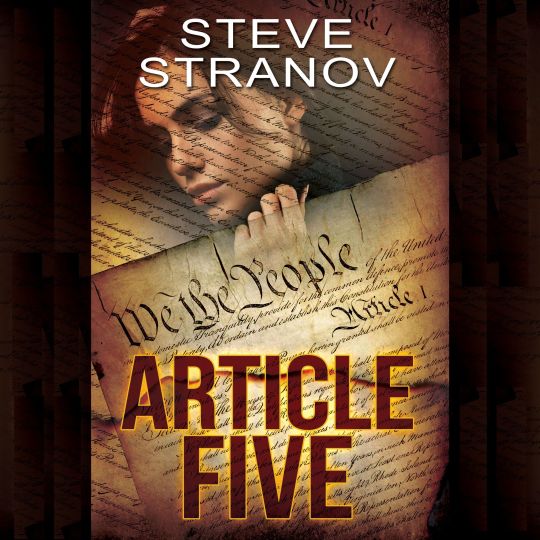
Article Five
Audio Drama
When a reclusive billionaire with politicians in his pocket realizes his lifelong dream of a constitutional convention to slash the federal government to the bone, a determined Nevada legislator concocts her own plan to hijack it and avert disaster.
https://audiofiction.co.uk/show.php?id=20240211-01
RSS: https://pinecast.com/feed/article-five

Loved Ones
Audio Drama
This isn't your typical podcast. We'll be exploring love for family, friends, pets, and more through a series of short stories brought to life by Broken Arts Entertainment. Featuring award winning plays adapted to fiction, award winning performers bringing their stories to life, and debuts. You'll find love throughout these short stories and you'll find tears and laughter and more.
https://audiofiction.co.uk/show.php?id=20240213-01
RSS: https://anchor.fm/s/eeb14858/podcast/rss
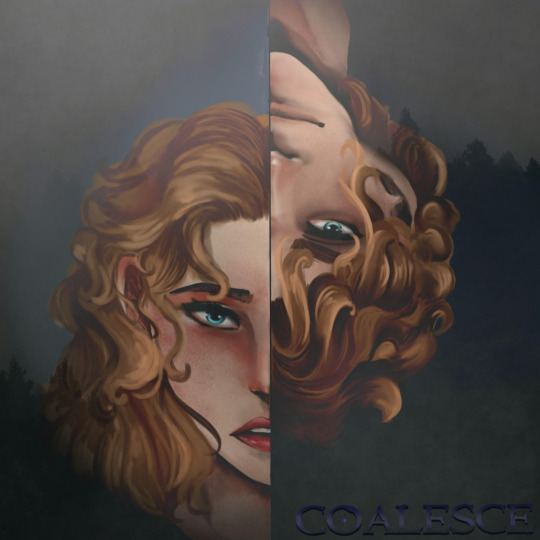
Coalesce: Crimson Flight
Audio Book
Genetically altered beings escape Tuama castle Prison and attempt to live in hiding. In the year 1287, a Welsh man claims the throne of Wales for his own, and subjugates King Edward I to rule in his stead.
https://audiofiction.co.uk/show.php?id=20240214-01
RSS: https://anchor.fm/s/f17fc974/podcast/rss
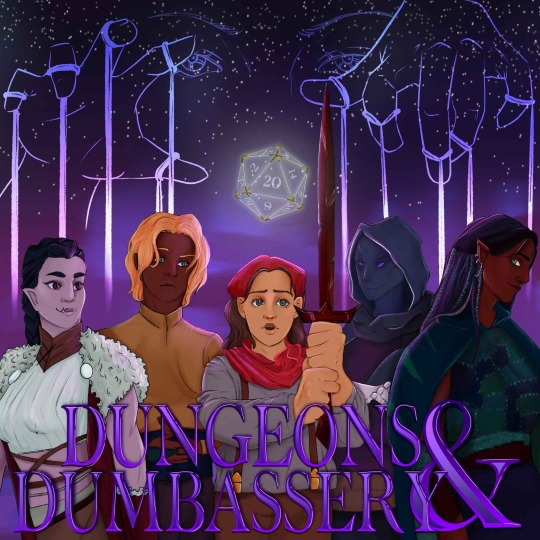
Dungeons & Dumbassery
Audio RPG
Join us on this Dungeons and Dragons podcast that takes place in a world of delusion and dumbassery, where our five players are led through a story full of magic and mystery.
https://audiofiction.co.uk/show.php?id=20240208-05
RSS: https://feeds.acast.com/public/shows/dungeons-dumbies
The Huntersfield Anomaly Report
Audio Drama
Something strange is happening in Huntersfield, Wisconsin. A door has mysteriously appeared deep within the Huntersfield Forest Preserve. A team of five individuals has been tasked with entering the door and reporting what’s inside.
https://audiofiction.co.uk/show.php?id=20240211-02
RSS: https://media.rss.com/hfar/feed.xml
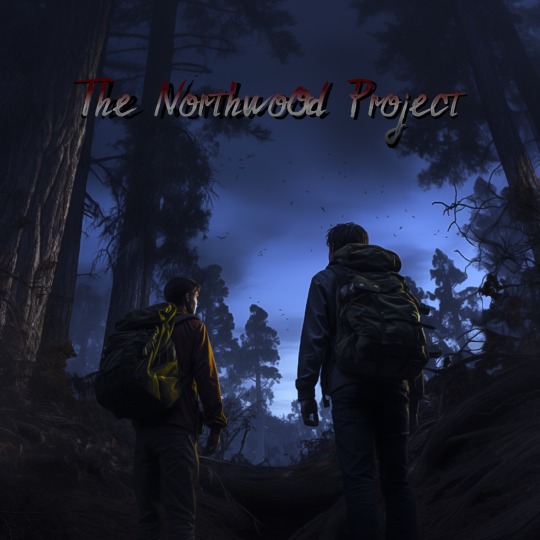
The Northwood Project
Audio Drama
Two boys from a small town are tasked with creating a current events podcast. When they decide to base their homework on some local disappearances, things get more than strange.
https://audiofiction.co.uk/show.php?id=20240206-03
RSS: https://feed.podbean.com/NorthwoodProject/feed.xml

Finding Ithaca
Audio RPG
Finding Ithaca is a Starfinder Actual Play that is about space pirates. Inspired by Treasure Planet and Titan A.E., the story follows a group of people finding a long lost treasure known as Ithaca that was hidden by the Pirate Queen, Captain Penelope many centuries ago. Starring Christian who will be playing Quinn Garou, a Vesk Envoy. Madeleine will be playing Astro MacCleod, an Ysoki Evolutionist. Ley will be playing Vain Jarkanoak, a Damai Witchwarper. Puja will be playing Baaghi, a Pahtra Operative and Wasa will be playing Innochi, an Android Technomancer.
https://audiofiction.co.uk/show.php?id=20240208-06
RSS: https://feed.podbean.com/FindingIthaca/feed.xml
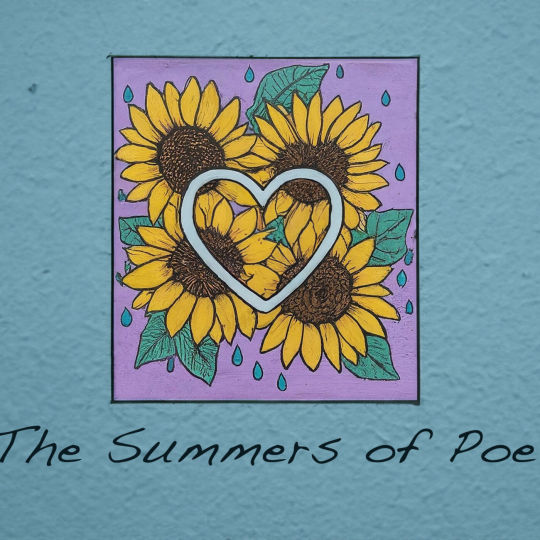
The Summers of Poe
Audio Book
Welcome to "The Summers of Poe", a queer, accented podcast series that takes you on a journey of self-discovery, sexual exploration, and self-acceptance.
https://audiofiction.co.uk/show.php?id=20240211-03
RSS: https://feeds.buzzsprout.com/2315266.rss

MARSS
Audio Drama
MARSS - The Mission to Acquire Residence inside our Solar System. Join Commander Luke Phillips and his crew as they attempt to colonize mars. Their journey is wrot with peril and suspense. Will they make it through their struggle or will man be faced to meet their potential doom on earth?
https://audiofiction.co.uk/show.php?id=20240208-07
RSS: https://www.spreaker.com/show/6082519/episodes/feed

Gutierritos
Audio Drama
Esta es la historia de un hombre cualquiera, Ángel Gutiérrez, conocido como "Gutierritos". Un pobre diablo dominado por su mujer y despreciado por sus hijos. Decide escribir sus memorias anónimamente sin imaginar que éstas pronto se convertirán en bestseller.
https://audiofiction.co.uk/show.php?id=20240130-05
RSS: https://feeds.simplecast.com/S5oDSA2e

Doom, Gloom & Zoom
Audio RPG
Welcome to Doom, Gloom & Zoom a D&D Podcast by Mine Podcasting.
https://audiofiction.co.uk/show.php?id=20240201-04
RSS: https://anchor.fm/s/887529d8/podcast/rss
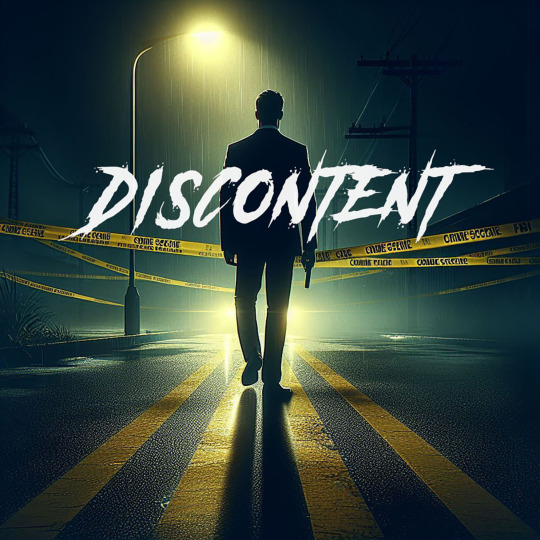
Discontent
Audio Drama
An ex-FBI agent is called back to deal with a case he thought was closed over a decade ago.
https://audiofiction.co.uk/show.php?id=20240212-01
RSS: https://anchor.fm/s/f2197ac4/podcast/rss
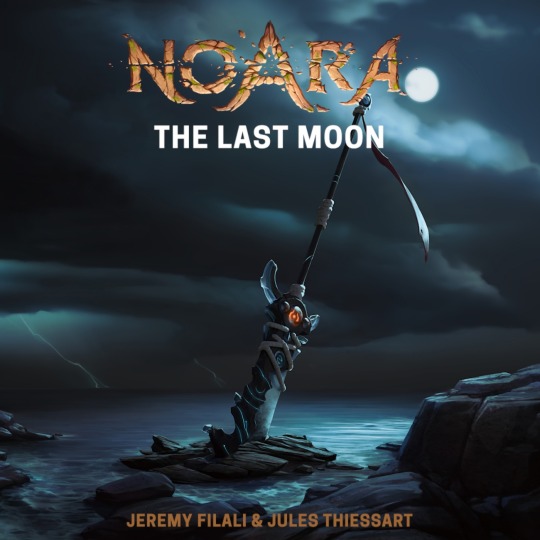
Noara: The Last Moon
Audio Book
The Kragh's clan are in an excited state, as the new generation of talented youngsters prepare to take the dreaded trial of the Stars. While they excel in their respective skills and seem to form a promising team, their lack of experience and the arrogance of their young age could be their downfall.
https://audiofiction.co.uk/show.php?id=20240201-05
RSS: https://feeds.acast.com/public/shows/65af8a48f08d670017558324
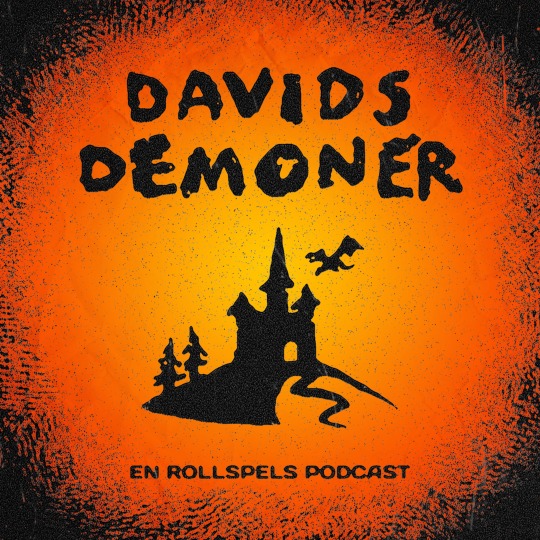
Davids Demoner
Audio RPG
En rollspels-podcast där vi får följa med Davids Demoner aka. David Kjellstrand med vänner, då de tar med oss på en resa i rollspelens värld! Med fokus på att göra rollspel lättillgängligt, där humor, roliga historier och gott umgänge står i centrum, försöker vi fånga den ultimata upplevelsen för att sedan ta med er på en improviserad fantasy berättelse, komplett med professionell ljudläggning och egenskriven musik. Davids Demoner släpps i episoder och följs därför bäst från första avsnittet och framåt.
https://audiofiction.co.uk/show.php?id=20240211-04
RSS: https://feeds.acast.com/public/shows/65a2e50f9150c5001686b1b3

The Beating Heartland
Audio Drama
"The Beating Heartland" is a bi-weekly Midwest horror audio drama. Follow the story as radio show host Denver Baughman, with the help of a mysterious agency, tries to piece together the puzzle of his horrifying past through his radio show, therapy sessions, and interrogations.
https://audiofiction.co.uk/show.php?id=20240212-02
RSS: https://anchor.fm/s/e960798c/podcast/rss

Fool's Gold: Sands
Audio RPG
Welcome to Fool's Gold, one of the most hilarious and dramatic D&D tabletop roleplaying shows on the internet! Join our cast of professional chaos goobers as they explore a winding world full of absurd monsters, moral dilemmas, legally-distinct-franchises, and emotional damage.
https://audiofiction.co.uk/show.php?id=20240213-02
RSS: https://feeds.simplecast.com/rckmAK_v
0 notes
Text
A Gathering of Poetry | October 2023
The poem I selected this month seems apropos since I am not home right now. I heard this poem read by Pádraig Ó Tuama some time ago and I think of it often (and I highly recommend listening to Pádraig read it… you won’t regret it!) I did not need to worry about anyone answering the door, we have the code to our Airbnb. But this poem evokes such imagery of being welcome, welcoming the stranger,…

View On WordPress
0 notes
Text
In the Shelter: Finding a Home in the World by Pádraig Ó Tuama

Where is it that we are when we pray? We are, obviously, in the place where we are. However, we are often in many places. We are saying to ourselves, "I should be somewhere else" or "I should be someone else" or "I am not where I say I am." In prayer, to begin where you are not is a poor beginning. To begin where you are may take courage, or compromise, or painful truth telling. Whatever it takes, it's wise to begin there. The only place to begin is where I am, and whether by desire or disaster, I am here. My being here is not dependent on my recognition of the fact. I am here anyway. But it might help if I could learn to look around. (pp. 15-16)
***
Jesus of Nazareth, fresh from muzzling a stormy sea, lands on the shore where this man is living. It is strange that the story associates the shoreline with tombs. When I die, I would like to be buried where the land meets the sea, but this shoreline was not a pleasant place, it seems, certainly for this anonymous man. Jesus lands and has begun interacting with this as-yet-anonymous man, and the man protests. In a small twist of irony, the man begs Jesus, by God, not to hunt his demons from him. Jesus asks him what his name is. The man answers, "My name is Legion, for we are many."
This can be read in so many ways. The word legion is a militaristic word, and the Roman legion that had decamped to this particular geographic area bore the boar as their standard on their banners. This answer of the anonymous man can also be understood simply, and powerfully, as an indication of the dignity of language.
"What is your name?" he was asked. And he answered, "I am what has afflicted me." How many of us know the truth of this? When we are toward the end of ourselves, we begin to believe that we are only what we struggle with. The man here tells us a truth that is awful—we baptize ourselves with names that are far from the only truth about ourselves.
My name is Legion, for we are many. He reminds me of Gollum, who, in Peter Jackson's depiction of Tolkien's work, says, "They cursed us, and drove us away. And we wept, Precious, we wept to be so alone. And we only wish to catch fish so juicy sweet. And we forgot the taste of bread, the sound of trees, the softness of the wind. We even forgot our own name."
The primary impulse of God in the first story of beginning is seen in naming, and it is a project shared with the Adam in the second story of beginning. This man has begun to believe the diabolical about his name. (pp. 56-57)
***
An encounter that has stayed with me ever since it happened was with a boy who was soon to make his confirmation. He was a happy person, easy with himself and his classmates. When we were talking about meeting Jesus and engaging with him, he said, "When I met Jesus, he knew my name, and I was thinking about this as we walked along. When you told us that we could say anything we wanted to him, I said, 'How do I know you are who you say you are?'" This struck me as christologically pristine in its inquiry, and I asked whether Jesus had responded. The pupil said, "Yeah, he looked at me and he told me the story of my life." I asked how that felt and he said, "Nice."
I have a friend, Jenny, and she has frequently played on the borders of religion. Her interest and inquiry are both deep, but she, because she never tired of the capacity to tell the truth plainly, has often not found herself welcome deeper into the borders of religion. One time, a preacher came to her and said, "God has told me to tell you something." The message was given, and Jenny felt moved that God would have cared enough about her to say something to her. She treasured this moment. A few months later, she was telling this story to a friend, and her friend said, "Oh, the preacher said the same thing to me and told me the same thing." Jenny found out that this was a regular line of the preacher's. Her disappointment was enormous. When she told me this, Jenny said that of all the desires she's had in her life, the desire to hear something from the God that she sometimes believes in is among the deepest desires she knows.
So what then is to be done with an experience like that small boy's? Jenny was in my mind as I heard him say that he had experienced, in his imagination, Jesus looking at him and telling him the story of his life. I thought that there are people who ache for such experiences. Yet I was aware that to burden this pupil with my reading of his experience would be unfair and irresponsible. I said, "That's a lovely experience. You might want to think about it every once in a while as you come to your confirmation." He said, "OK," and then said, "Can I color?" I said, "Of course you can."
I met this same boy a few months later and asked him if he'd remembered what he'd said at our previous time together, and he said, "Oh yeah, something about Jesus and my story, wasn't it?" (pp. 74-75)
***
Is It Working?
When you've been alive for only
five thousand
eight hundred
and twenty-nine days
The pathways are
rarely clear
here where
the roads keep changing.
What makes sense
on one day
makes none
the next.
And so
to avoid exhaustion
and to deepen rest
ask yourself
these questions.
How would you
describe today?
And
Have you seen
anything interesting
on the way?
And
Is it working?
Is it working?
Always
Is it working?
***
Ar scáth a chéile a mhaireas na daoine.
It is in the shelter of each other that the people live. It is also in the shadow of each other that the people live. It could also mean "Our shelter can be our shadow" or even "What shelters me may shadow you." The poet Micheal O'Siadhail, also a linguist, wrote to me once that scáth is related to a Norwegian word for "mist." He wrote, "I wonder if the wisdom in this proverb demands a kind of discernment, a peering through the blur of ordinary living to decide when closeness overshadows and when it protects."
We can do beautiful things and terrible things to ourselves and to those we consider to be "our others." We know this everywhere; in Belfast, neighbors have known—and sometimes caused—their neighbors' terror and also their trouble, their sheltering and their shadowing, their radiances and their rages.
The word "shadow" in Old English is sceadu, meaning "darkness" or "protection," and the Old English for "shelter" might also have meant "shield." One of the ancient Hebrew words for shelter is sel—it also means "shadow" as well as "transitoriness." A Greek word for shadow, skia, implies "foreshadowing," and its sister word skenoo can mean "shelter" or "tent dwelling."
The Gospel of John uses these words at the beginning. The word became flesh and tent dwelled among us. The word became flesh and made his shadow and his shelter here.
Words have meaning. Words have power. Words shape the tents we live in and the places we depart from. They contain and they constrain. But anyway, in the midst of all this multilingual sheltering and shadowing, god-talk and babbling, I am remembering what Declan Kiberd meant when he wrote that all translations are little colonizations. It's baffling that we manage to understand each other at all.
I moved to Belfast in 2003. At that point, I had had a nomadic decade, having moved from Cork to Dublin and then Switzerland and Australia, with short and long jaunts in Lithuania, Uganda, and the Philippines along the way. By the time I moved to Belfast, I was tired of moving and determined to settle: a good thing, too I had never experienced as much culture shock in my life. Some people spoke to me as a fellow Irishman; others insisted I was a foreigner.
Hello to the shock of surprise.
Hello to the echo of trouble. (pp. 93-95)
***
The body tells many truths—I am tired, I am sick, I am in need of healing, I am in need of health, I am in need of touch—but I am also conscious that the first truth that is read from the body is often the truth of its sex. A friend gives birth to a baby and we ask, "What is it?" If this is the first query we have—and it is usually the first question I ask—then what truth does that tell about us? Is there ever the possibility that the truth sought could be both wrong and oppressive? Given the truth and accessible public stories of people who are transgender, genderqueer, or intersex, it seems without doubt that we all know people who have told a gendered story about their newborn that, in time, will not be true. The real true story can take a long time to tell because it first needs to be whispered, and often only with brave measures to ensure safety can the real truth of the body be told out loud.
Hello to the brave truths of the body, told aloud or told alone.
I do not know this story because it has never been my story. I was the boy who liked colors and fabrics and gymnastics and was called a faggot before I knew what a faggot was. But I always knew I was a boy even though there didn't seem to be many other boys like me when I was growing up. Other people too always knew they were boys even though their doctors and their families, their structures and their strictures, told them a different story. Their doctors and families told them one thing, but for as long as they can remember, they and their bodies knew the truer truth. The body knows its own truth, and it is often unrelenting.
I sat next to a man during a church service last year, and when the time came for people to call out items to be included in a list of prayers, he asked for the group to pray for him because his uterus was in trouble. It was duly written down and he enjoyed the look of surprise I gave him. We'd only known each other a few weeks, and we hadn't discussed sex or gender identities yet. Over coffee I said, "Your prayer request was filled with new information," and he said, "Oh, I'm intersex, I was born with most sex organs. I love my uterus. Everybody needs one."
A woman nearby said, 'I'd happily get rid of mine," and my friend said, "Love your uterus" and winked.
This is a story of the truth of the body. While I've been typing it, my computer program repeatedly changes "intersex" to "interest," another way in which our machines reveal us. People whose sex identity doesn't fit into binary categories—or people whose sex identity has undergone a transformation, or a journey, or a change, or public comment—are repeatedly barraged with questions that demonstrate interest in their genitals, exchanges that are rarely reciprocal. I do not know what it is like to have the feeling that my body lies to the world about what I know the truth to be. To live well, I must believe the truth that others tell, especially when they have been forced into the habit of being habitually unbelieved.
Hello to the unbelievable body. (pp. 156-58)
***
For years I counted hugs.
One, Two, Three, Four.
One in Donegal with Annette.
Then Two, two years later, at a summer camp.
Then Three, unexpectedly, after a party.
When I was eighteen, I remember the count was up to thirty. I knew them all. Does the counting of hugs count as one loneliness or many? What I do know is that it was a far superior replacement for the comparison of body shapes and sizes with my contemporaries. To count the squeezings of the heart is to count certain encounters with others, and this is a thing shared, not a thing compared. It was not a race to a goal but a map of love traveled and love hoped for. (pp. 164-65)
***
The ninth chapter of the Gospel of John has a question as old as the world. The disciples have seen a man who has been blind since his birth and they wish to know the cause of his blindness. They ask whether it was his fault or the fault of his parents. In a certain sense, the disciples bring us back to the questions of the Eden story, questions of causality, blame, and punishment.
Mu, Jesus might have answered, if Jesus were Japanese. Unask the question, and ask a different one.
Who told you that you were naked, the God asked in the garden, and the Adam said, "The woman you gave me gave me something to eat." The economics of blame seem to be indigenous to us. I didn't start the fire, I just blew on it. I wonder if this is the original sin the capacity to blame, to avoid responsibility, to throw another into the fire so that we don't burn. But then we burn with shame and the fire just gets bigger. (pp. 176-77)
***
Ira Byock is a palliative care doctor who has, in the course of his career, observed that people who are dying tend to say four things. They say, "Please forgive me"; they say, "I forgive you"; they say, "Thank you"; and they say, "I love you." Four small sentences made up of eleven smaller words. I am struck by the grounding counterpoint provided to the three questions of life—the whoamiwhereamigoingwhatamisupposedtodo questions. It is not as if the questions that agitate life are necessarily undone by Ira's observation of the statements that sum it up. But there is something valuable to note.
We move from questions about our own ontology as meaning-making, story-seeking individuals to statements or requests that are entirely predicated upon responsibility and reciprocality. The move from one to another demonstrates a substantial change in the question of "Who am I to be?"—a question that can trespass upon the quicksand of an ideology more concerned with its intention than its impact—to statements that recognize the truth of how we hurt and heal each other, of how very much we can mean to each other. (p. 241)
***
I heard Carol Ann Duffy say recently that she thinks that if she believed in God, she would find prayer most consoling, because to pray is to believe that someone is listening. "For everybody else," she said, "there's poetry." I sat and thanked God, or whoever might be listening, for prayer and poetry. (pp. 260-61)
0 notes
Text
Read PDF In the Shelter: Finding a Home in the World EBOOK -- Pádraig Ó Tuama
Read PDF In the Shelter: Finding a Home in the World Ebook Online PDF Download and Download PDF In the Shelter: Finding a Home in the World Ebook Online PDF Download.
In the Shelter: Finding a Home in the World
By : Pádraig Ó Tuama
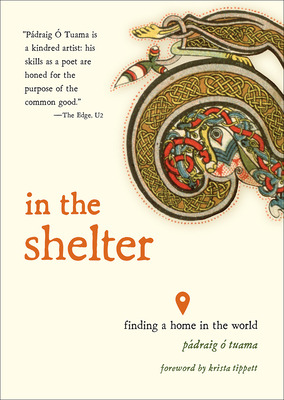
DOWNLOAD Read Online
DESCRIPTION : From master storyteller and host of On Being's Poetry Unbound, Pádraig Ó Tuama, comes an unforgettable memoir of peace and reconciliation, Celtic spirituality, belonging, and sexual identity.It is in the shelter of each other that the people live. Drawing on this Irish saying, Ó Tuama relates ideas of shelter and welcome to our journeys of life, using poetry, story, biblical reflection, and prose to open up gentle ways of living well in a troubled world.In the Shelter introduces Corrymeela, the Northern Ireland peace and reconciliation community Ó Tuama led for many years, and throughout the book he reveals the power of storytelling in communities of conflict. From the heart of a poet comes a profound look at the landscapes we all try to inhabit even as we always search for shelter, a place we can call home.An instant spiritual classic in Ireland and Britain, now brought to a US readership.
0 notes
Text
📖✨
Hi all! Happy 2021! I was tagged by @seaoflove (thank you!!) to post my reading list for this year so that’s what’s beneath the cut :) Anyone who sees this and wants to do it as well is welcome to - I’d love to see what everyone is planning on reading!!
2021 TO READ LIST
rebecca solnit – a field guide to getting lost
ocean vuong – night sky with exit wounds
robin wall kimmerer – gathering moss
rebecca solnit – wanderlust: a history of walking
ross gay – catalogue of unabashed gratitude
john o’donohue – anam cara
joanna macy – coming back to life
rachel carson – silent spring
anna tsing – the mushroom at the end of the world
ernest callenbach – ecotopia
louise may alcott – little women
maeve binchy – light a penny candle
helen oyeyemi – gingerbread
peter wohlleben – the hidden life of trees
octavia e butler – parable of the sower
rumi – the book of love: poems of ecstasy and longing
elizabeth alexander – the light of the world
patricia highsmith – the price of salt
shaffer & barrows – the guernsey literary & potato peel society
ursula k leguin – always coming home
baldwin & mead – a rap on race
padraig o tuama – readings from the book of exile
david a robertson – strangers
madeleine thein – do not say we have nothing
carlos ruiz zafon – the shadow of the wind
dorothy day – the long loneliness
the letters of vita sackville-west and virginia woolf
jennifer jewell – the earth in her hands
mary ruefle – madness, rack, & honey
e f schumacher – small is beautiful
donna haraway – staying with the trouble
jeannette winterson – lighthousekeeping
chen chen – when i grow up i want to be a list of further possibilities
#tbh there's even more i want to read#but we'll leave it at this for now:D#try to keep it doable#to read list 2021#hope everyone has a good january!
2 notes
·
View notes
Text
Street Poetry & Divine Intervention

This past week I decided to take a detour as I drove home to Austin from Florida, and spend a couple of nights in New Orleans--a city I'd never visited before.
As I wandered through historic and picturesque Jackson Square, I decided to check out the dozen or so art vendors that were selling their works on one of the streets of the square.
It was then that I walked past a solitary young man, who was sitting alone at a tiny desk with an old-fashioned typewriter in front of him. The sign hanging from the desk read: Poetry. Stories. Therapy.
I walked a few steps past him and then stopped in my tracks where I stood for a few seconds, debating whether to turn around or not. "Just say yes," a voice in my head seemed to say, so I walked back.
"You got my attention," I told the young man once I was standing in front of him. "What do you do, exactly?" He went on to say that he would write me a poem on any topic that I chose right then and there.
"That's cool," I told him. "Okay, I'm in. Any topic...hmmm."
I stood there not knowing what to say at first, but then it came to me in a flash... I stared at the ground for a few beats, and then finally spoke the words that I didn't really want to say out loud for some reason: "Divine Intervention."
Now it was his turn to stare at the ground. "That's a good one," he said softly. "Okay, here goes." And with that, he began typing on his old typewriter, the keys clicking and clacking, followed by a return here and there.
As he typed, I thought about why those particular words had come to me--out of all of the words I could have chosen.
I realized then that they had come from the same place as the prayers I've been praying lately... a place deep inside that desperately wants to know that God is somewhere in the middle of this crazy world...
When he finished, he pulled out the piece of paper, and read it silently. "Do you want to hear it?" he asked me at last. I told him that I did, and this is what he read to me:
stuck waiting
for the clock to start ticking
for the wheels to carry us
back home to where the heart
is hiding
open up our hands to the sky
and let the rain point the way
and let the puddles of clear water
whisper the insane secret of hope. - Alexander Jusandis
"That's perfect," I whispered. And it was.
The poem was a prayer. The poem was also an answer to a prayer. The poem said what I'd wordlessly been praying when I felt like I had no words.
It was in its essence the very thing that it was about--a divine intervention.
The poet Padraig O' Tuama recently wrote:
Prayer, like poetry--like breath, like our own names--has a fundamental rhythm in our bodies. it changes, it adapts, it varies from the canon, it sings, it sears, it is syncopated by the rhythm underneath the rhythm, the love underneath the love, the rhyme underneath the rhyme, the name underneath the name, the welcome underneath the welcome, the prayer beneath the prayer.
I would add this to O' Tuama's beautiful description: God is the ground... the event... the happening... the cause and effect underneath all of everything... underneath our prayers, our wordless cries, and the desires we feel to simply know.
May you experience divine intervention today. May you discover the ground of your being in God's surprising presence. May it be so. And may the grace and peace of our Lord Jesus Christ be with you now and always. Amen.
1 note
·
View note
Text
Today’s Poem
In-between the sun and moon
--Pádraig Ó Tuama
In-between the sun and moon,
I sit and watch
and make some room
for letting light and twilight mingle,
shaping hope
and making single glances last eternity,
a little more,
extending love beyond the doors of welcoming,
while wedding all the parted people,
even sons to violent mothers,
and searching all the others finding light
where twilight lingers,
in-between the sun and moon
3 notes
·
View notes
Text

Bahhh no wonder why people are homoph0bic this scary asf 😒 (/j /ref)
Alt B&W version below

#I realized I never posed this 😀#mackachu art post#oc#oc art#bisexual#demisexual#pansexual#greysexual#welcome to tuama#welcome to tuama mm#wtt mm
8 notes
·
View notes
Text


NOTES ໒꒱
‼️ Please do not create anything s3xually explicit around these characters (Like NSFW drawings or text)! The creator is a minor along with some of the characters!‼️
‼️Please do not copy any characters/ideas or trace any art made for this blog‼️
‼️ Please do not create parody blogs for this story blog‼️
❗️DNI: NSFW accounts, AI “Artists��, AI model trainers, R@cists, Homoph0bes, Transph0bes, Abel1sts, P3dophiles (or supporters of any), Z00ph1les (or supporters of any), people who make anything related to Inc3st (or support this), or anything mainly problematic.

INFO ໒꒱
꒰ঌ A blog sharing artwork, doodles, behind the scenes snippets, character/story information, fun facts, and more things related to a story called Welcome to Tuama
꒰ঌ Ask the cast and creator of Welcome to Tuama questions about the story, themselves, and etc
꒰ঌmore information about the story coming soon໒꒱

SUPPORT ໒꒱
support the creator and future projects
꒰ঌ ko-fi
꒰ঌ patreon

MAIN BLOG ໒꒱
꒰ঌ created by @mackachu1212

OTHER BLOGS ໒꒱
꒰ঌ @macksdiner-mm-official
꒰ঌ @roses-mm-official
꒰ঌ @iotgc-mm-official
꒰ঌ @neosrenaissance-mm-official

FEATURED TAGS ໒꒱
꒰ঌ character tags
#{⛲️ welcome to tuama}#{⛲️ wtt post}#{⛲️} art#{⛲️} behind the scenes#{⛲️} asks#{⛲️} oc asks#{⛲️} fan art#{⛲️} writing#{⛲️} lore#{⛲️} fun facts#welcome to tuama mm#wtt mm
0 notes
Text
The Key to Acceptance: Understand That Everything Changes With Time
“If you argue with reality, you lose, but only 100% of the time.” ~Byron Katie
I love this quote. Ironic, really, because when I first read it I was furious—furious with my reality and anyone who encouraged me to accept it. In my mind to accept chronic illness was to accept defeat.
I had just been diagnosed with fibromyaglia, an incredibly painful condition that had me bedridden most days and unable to care for my then two-year-old daughter, never mind myself. My home became filled with carers and aids and adaptations.
Rather than starting a new career as a newly qualified occupational therapist, I was struggling with the fear of lifelong pain, the shame of unemployment, and the guilt of not being the active mother I desperately wanted to be. I was in no mood to accept such circumstances in life.
So how did I move from a position of resistance to one of restoration? How can we find some wiggle room in situations that may feel utterly immobilizing? Well, chocolate and cake help, but what really started creating space for growth was the Buddhist notion of impermanence and the insight, acceptance, and mindfulness that flowed from that.
Impermanence is a universal law; every single thing is in flux. Take the British weather, for example. We know it’s unpredictable and always changing, so when we go on holiday here we often take boots and raincoats as well as sun cream and hats!
We see this same principle mirrored in ourselves as we change with age. I remember a time when I was washing dishes and, in looking down at my hands, was taken aback at how much they resembled my mother’s. Soft lines and delicate wrinkles that had found a home on my skin stared back at me.
The deep realization that not a single person or thing is fixed and all is ultimately impermanent can cause some sadness and anxiety, but within this there is a freedom and hope.
The Glass is Already Broken
Someone once asked a well-known meditation master, Ajahn Chah, in a world where everything changes, how can there be happiness?
The teacher held up a drinking glass and with much compassion explained, “You see this goblet? For me this glass is already broken. I enjoy it. I drink out of it. It holds my water admirably, sometimes even reflecting the sun in beautiful patterns. If I should tap it, it has a lovely ring to it. But when I put this glass on a shelf and the wind knocks it over, or my elbow brushes it off the table and it falls to the ground and shatters, I say, ‘Of course.’ When I understand that this glass is already broken, every moment with it is precious.”
When I read this and really let it sink into my bones, slowly, gently, something shifted. I realized then all human life is fragile—sickness doesn’t discriminate.
Though my ill health had initially caused so much loss and sadness, I was able then to move from a place of “Why me?” to a “Why not me?” It cooled my rage, and the first shoots of acceptance began to show.
We will all experience pain at some point in our lives. It is part of the package of being human. Accepting this can help ease the suffering enmeshed in pain and encourage us to truly embrace and appreciate life’s pain-free moments, the pockets of joy.
Saying Hello to the Here of Our Circumstances
There is a wonderful story in Pádraig Ó Tuama’s book, In the Shelter, about a photojournalist who was returning to a tribe in Papua New Guinea where she had lived as a child. Within this tribe there was no word for hello. Instead, upon seeing someone you simply said, “You are here” and the response being equally clear was “Yes, I am.”
Isn’t that wonderful? No judgment—just acknowledgement of what’s here. When we say hello to the here of our circumstances, no matter how dire or unfair they seem, we’re better able to accept them.
Acceptance is not defeat. It is an acknowledgment of the truth. Once we accept where we are we can move forward with greater clarity, courage, and strength. It’s an opportunity to become unstuck, to experience well-being in the midst of our symptoms and beyond our symptoms.
The Power of Mindfulness
One thing that helped me get unstuck was mindfulness, which means conscious awareness of our moment-to-moment experience, without judgment.
When I began to tentatively practice mindfulness each day I soon realized that my experience of pain was never static. It changed in its intensity and location, and ultimately had many flavors. Sometimes it was a stabbing or burning sensation, at other times a dull ache. I could observe how it felt in different parts of my body and how, like waves, it had a tendency to rise and fall. I was shown how my experience of chronic pain was, like the weather, ever changing.
This helped me shift my focus from one of resistance to flexibility. It removed the sting of emotional suffering from my pain, creating a much less devastating and more manageable illness experience.
I was finally able to whisper a faint hello to the pain and the emotions around it, and the practice of listening became a sort of self-hospitality. I could welcome what is just as I would welcome a friend.
Within this I also saw the flip side of impermanence, the gift that nothing is set in stone. I was told I would always be in constant pain, but I knew my pain experience was fluid. I had occasional respite from it, even if it was just one hour a day, and with new pain knowledge and Buddhist principles I was learning to emotionally disengage from it.
Seven years after my devastating diagnosis I actually recovered from the pain of fibromyalgia. That was over three years ago, and I have never had to take pain medication for it since, but that’s another story.
As it stands I’m currently learning to navigate life with another painful chronic illness—hello, broken glass—but I’m much better able to manage it now that I understand the universal truth of impermanence and have nurtured the willingness to say hello to the here (albeit at times begrudgingly).
If a black mood does settle on me I try to take myself out for a mindful meander in nature.
When I can be still and behold a whirling turn of birds, twisting and twirling like leaves caught in a breeze, it cuts through the chatter and noise, my frets and fears. It’s a sweet balm for life’s concerns.
Mindful moments like these, when there is peace in every breath and joy in every view, are sacred to me. They remind me that there is so much beauty in the world to balance the pain. In nature I feel truly hushed, seen, found, and grounded, enabling me to appreciate the present moment and helping to create the chance of a promising future.
Happiness is, after all, an inside job. It’s not about having perfect circumstances; it’s about making peace with what is and making the best of the hand we were dealt.
Practicing mindfulness, appreciating nature, and understanding impermanence are some of the things that have helped me—and could help you too. When we embrace what is, enjoy what we can, and accept that all things inevitably change, peace becomes possible.
About Claire Marsden
Claire Marsden is a qualified occupational therapist with a passion for nature, mindfulness, and well-being. She has a painful chronic illness that she’s learning to navigate life with, her second after recovering from a previous illness three years ago. She hopes you find her thoughts of use on your own journeys to well-being. You can visit her at hopehikesandhealing.com and on Twitter @occulife.
Web | More Posts
Get in the conversation! Click here to leave a comment on the site.
The post The Key to Acceptance: Understand That Everything Changes With Time appeared first on Tiny Buddha.
from Tiny Buddha https://tinybuddha.com/blog/the-key-to-acceptance-understand-that-everything-changes-with-time/
0 notes
Photo


The Northeast Station of Research and Teaching, part of the Institute of Legal Studies (IIJ), of the National Autonomous University of Mexico (UNAM) welcome to all audience to participated in the lecture/ Workshop “Human Rights and Borders” given by Ph.D. Séamus Ó Tuama, professor at University College Cork, Ireland. The main propose of this lecture will be to review different positions about Border’s studies
After the audience sign up they will be provided with the following documents
The paper of the lecture, written by Phd. Séamus Ó Tuama
The topics of the agenda in the Northeast Station of Research and Teaching.
“... Fundamental rights, need expression in three ways, firstly they need to be legally framed (formal rights), secondly human rights have to be legally enforceable (factual rights), they also need to be justifiable in a way that does not rely solely on a cosmological justification as deriving from god nor form a natural law perspective. In this paper I would like to also briefly refer to two additional concerns. Firstly around political boundaries and the extent to which rights permeate through these borders and then around a second type of border that creates lacuna’s or what Kirchheimer (1955) called constitutional twilight zones” -Dr. Séamus Ó Tuama
_________________________________________________________
La Estación Noroeste de Investigación y Docencia del Instituto de Investigaciones Jurídicas de la UNAM invita a la charla “Human Rights and Borders” que impartirá el Dr. Séamus Ó Tuama, investigador de la universidad de Irlanda University College Cork. El objetivo de esta discusión es abordar algunas de las diferentes temáticas del estudio de las fronteras.
Se invita a participar en esta discusión colectiva. Con previa anticipación se compartirá:
Ponencia “Borders and Human Rights” del Dr. Ó Tuama
Temas de Agenda de la Estación Noroeste de Investigación y Docencia del Instituto de Investigaciones Jurídicas de la UNAM
“...La finalidad particular de este artículo es contribuir a esta discusión utilizando cinco temas, en principio los derechos humanos fundamentales, que demandan ser expresados en tres maneras. En primer lugar, deben estar legalmente enmarcados (derechos formales), en segundo lugar, los derechos humanos tienen que ser legalmente exigibles (derechos fácticos), finalmente deben justificarse de una manera que no se sustente en un iusnaturalismo, es decir que la fundamentación y motivación no se encuentre en una justificación cosmológica derivada de Dios ni en una perspectiva de ley natural. Asimismo, en este artículo me refiero brevemente a dos preocupaciones adicionales que se relacionan de forma transversal con los Derechos Humanos, en primer lugar, la evolución e impacto de las fronteras políticas y la medida en que los derechos humanos penetran a través de estas fronteras y luego alrededor de un segundo tipo de frontera que crea lagunas o lo que Kirchheimer (1955) llamó zonas crepusculares constitucionales.“ - Dr. Séamus Ó Tuama
More info: https://goo.gl/56rNvV
#miercolesdemigrantes#humanright#borders#derechos humanos#migracion#fontera#immigration#unam#iijunam#ucc#ireland#cork ireland#mexico
0 notes
Text

Crap drawing of spooky Azrael because someone on the poll wanted a wtt (@wtt-mm-official) drawing and I started to feel like shit
I also wrote something in Tuamerian (made up language of made of species Tuamerian) and something in Spanish (but I kinda suck at Spanish even though I have a good grade in my Spanish class)
It’s a bad photo because it wouldn’t look right no matter how much I edited the picture to make it more clear.
Ok bye bye now
#mackachu art post#oc#oc art#oc doodle#art#doodle#shitty doodle#welcome to tuama#welcome to tuama mm#wtt mm
6 notes
·
View notes
Text
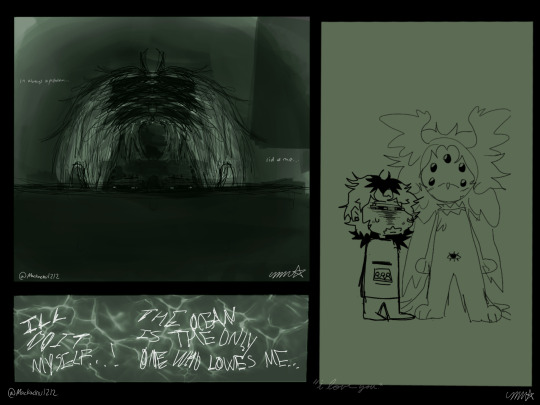
bath.
#tw#tw scopophobia#tw ablutophobia#mackachu art post#welcome to tuama mm#wtt mm#art#digital art#oc art#procreate artist#artist of tumblr#oc#ocs#my ocs#artist
6 notes
·
View notes
Text

Ref pic below

#mackachu art post#welcome to tuama mm#wtt mm#art#oc art#oc#ocs#doodle#sketch#artist of tumblr#support an artist
3 notes
·
View notes